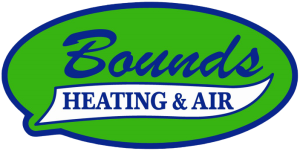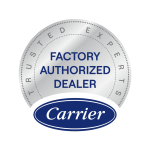Common HVAC Noises and What They Mean
Why Your HVAC System Makes Noise
From motors and fans to compressors and ductwork, your system is a complex network of components. These components are always moving while on, so some noise is expected. While a light clicking at startup is standard, changes in volume or tone often signal that a part is wearing down or out of alignment.
Common HVAC Noises You Shouldn’t Ignore
- Banging or Clanking: Banging or clanking can indicate a loose or broken internal component, such as a connecting rod or crankshaft. If your AC is making a loud noise banging noise, shut it off to prevent further damage.
- Buzzing or Humming: A buzzing noise from HVAC unit areas usually indicates electrical issues, such as failing capacitors or loose wiring. It can also mean debris is trapped in the outdoor unit.
- Hissing or Whistling: Unusual hissing or whistling noises could be air escaping through rattling ductwork or a sign of a refrigerant leak. Refrigerant issues require immediate professional attention.
- Screeching or Squealing: This high-pitched sound typically stems from a worn fan belt or failing motor bearings.
- Clicking: While a click is normal when the system cycles on, a furnace making a clicking sound constantly often signals a faulty electrical relay or a thermostat problem.
Don’t Ignore the Noise — Get Expert HVAC Help
When a noise is sudden, persistent, or paired with poor airflow, it is time to call in the pros. Ignoring these sounds can lead to higher repair costs or complete system failure.
Protect your family’s comfort by letting our highly trained technicians pinpoint the issue safely. Bounds Heating & Air is here to provide fast, effective service backed by our 100% satisfaction guarantee.
Call us at (352) 472-2761 to schedule your inspection today!
Image Credit: Poguz.P


